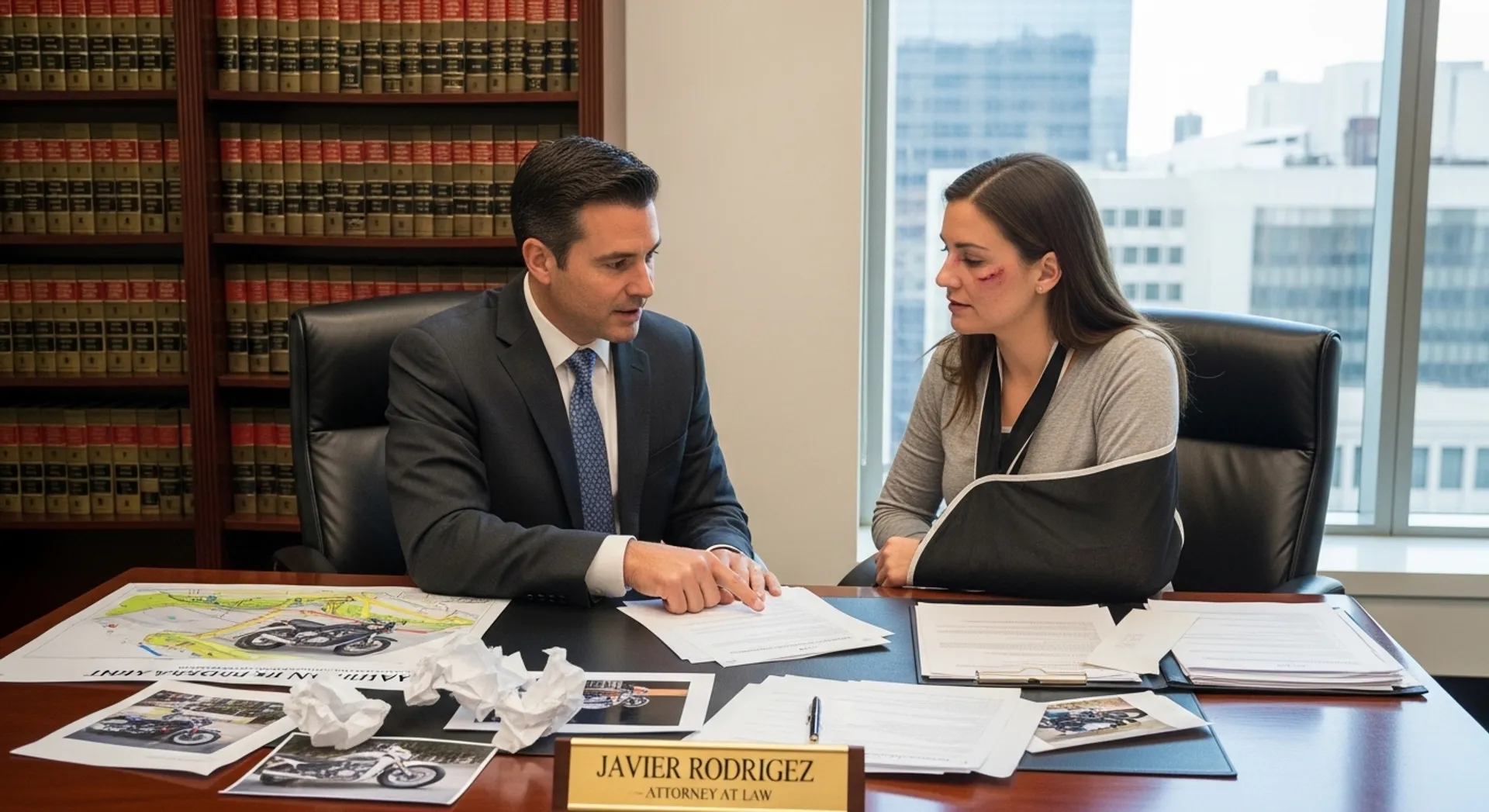The Role of Insurance in Motorcycle Accident Claims
After a motorcycle accident, your insurance coverage becomes critical. If you don’t understand how to manage your motorcycle accident insurance claims, you could miss out on compensation you’re entitled to. Whether you’re dealing with your own insurer or the at-fault driver’s provider, documenting everything and knowing the process are essential.
Understanding Motorcycle Accident Insurance Coverage
Motorcycle insurance policies typically include the following types of coverage:
- Liability coverage: Pays for injuries and property damage you cause to others.
- Uninsured/underinsured motorist coverage (UM/UIM): Covers you if the at-fault driver has no insurance or inadequate coverage.
- Medical payments (MedPay): Helps pay for your medical expenses, regardless of fault.
- Collision coverage: Covers damage to your bike from a crash.
- Comprehensive coverage: Pays for non-crash damages (theft, weather, vandalism).
Understanding which parts of your policy apply to your motorcycle accident insurance claim is the first step in maximizing compensation.
Who Pays in a Motorcycle Accident Insurance Claim?
Liability depends on fault. If another driver caused the crash, their insurance typically pays for your damages. However, the process isn’t always straightforward:
- The at-fault driver’s insurer may dispute fault.
- You may need to rely on UM/UIM coverage if they are uninsured.
- Your insurer may offer MedPay coverage to handle immediate bills.
States like California use comparative fault, meaning your compensation may be reduced if you’re partly at fault.
Learn more about legal strategies in these situations from our post: Why You Need a Motorcycle Accident Lawyer
Motorcycle Insurance Claims Process: What to Expect
Once you notify your insurance company, they’ll assign an adjuster to evaluate your claim. Typically:
- You’re asked to give a statement.
- You submit photos, medical records, and repair estimates.
- The adjuster investigates liability and damages.
- A settlement offer is made—rarely the best on the first try.
To learn more about evidence collection, visit our post: How to Document Your Motorcycle Accident for a Strong Legal Case
Talking to the Other Driver’s Insurance Company
If the other driver caused the crash, their insurance company may reach out quickly. Remember:
- Their goal is to minimize payouts.
- They may ask for a recorded statement.
- Early settlement offers are often too low.
Never speak to the other insurer without guidance. It’s best to have legal support before engaging in any motorcycle accident insurance claim discussions.
For more, visit the National Association of Insurance Commissioners for consumer insurance rights.
Common Motorcycle Insurance Claim Mistakes to Avoid
Avoid these missteps to protect your case:
- Admitting fault to adjusters
- Delaying medical care
- Accepting early settlements
- Signing medical releases too soon
- Failing to document injuries and expenses
How a Lawyer Strengthens Your Motorcycle Insurance Claim
An experienced attorney can help you navigate your motorcycle accident insurance claim by:
- Communicating directly with insurance companies
- Negotiating higher settlement offers
- Contesting denied claims
- Identifying all liable parties and available coverage
They also understand state-specific statutes of limitations and legal procedures.
When Motorcycle Insurance Isn’t Enough
If the at-fault party’s insurance doesn’t cover all your losses, your lawyer may explore:
- UM/UIM claims on your own policy
- A personal injury lawsuit
- Third-party liability (e.g., defective road conditions or motorcycle parts)
Final Thoughts
Insurance plays a huge role in motorcycle accident insurance claims, but it can also be confusing. Knowing your coverage, avoiding mistakes, and getting legal help early can significantly improve your outcome.
If you’ve been injured in a motorcycle accident, contact our legal team at Motorcycle Accident Law Firm for a free consultation and let us help you fight for the compensation you deserve.
For broader insurance guidance, explore Consumer Reports’ guide to filing insurance claims.




